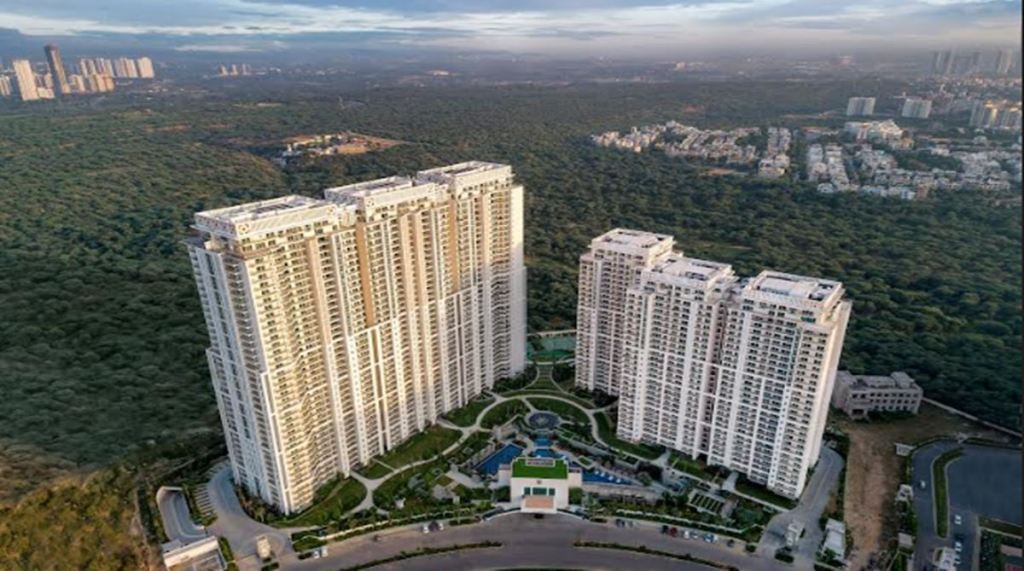India has made remarkable progress in its quest for a sustainable future, showcasing significant advancements in the field of green buildings. The country has emerged as a global leader in incorporating sustainable and eco-friendly practices into the real estate sector, demonstrating a strong commitment to energy-efficiency and environmentally-conscious materials. The green building revolution in India has been further bolstered by proactive government policies and initiatives.
The Ministry of Environment, Forest and Climate Change has introduced a range of regulations, incentives, and grants to promote sustainable practices in the real estate sector. These measures include tax benefits, streamlined approvals, and financial support for green building projects. Some of the prominent green buildings in India include ITC Green Centre in Gurgaon, Suzlon One Earth in Pune, Patni (i-GATE) Knowledge Center in Noida, Olympia Tech Park in Chennai, Infinity Benchmark in Kolkata, and CRISIL House in Mumbai.
Highlighting the significance of green homes in reducing environmental impact and promoting a sustainable and responsible way of life, Shashank Vashishtha, Executive Director, eXp Realty India, said, “We are witnessing a significant shift in preferences as more and more buyers recognize the immense value and benefits of investing in environmentally-responsible properties. Green buildings offer a unique combination of sustainability and comfort, providing residents with energy-efficient features, healthier indoor environments, and reduced environmental footprints. This growing demand for green buildings is a clear indication of buyers’ commitment towards a greener and more sustainable future.”
Also Read: Debit Card vs Credit Card: Which is better for frequent use?
India’s commitment to sustainable real estate practices has been exemplified by the recognition bestowed upon Crest, a residential development by DLF Ltd situated at Golf Course Road Gurgaon. The US Green Building Council (USGBC) recently announced the recipients of its 2023 LEED Homes Awards, recognizing projects, developers and home builders that have demonstrated leadership in the residential green building marketplace. The Crest was awarded with Project of the Year, making it the most sustainable residential project across the globe. Last year, The Crest was recognized as the world’s largest LEED Platinum-certified residential project. Previously, The Crest also received LEED Gold certification in 2019. To attain LEED certification, the project underwent a comprehensive evaluation process to assess its energy efficiency, indoor air quality, water use and sustainable construction materials. The building received high scores in various categories, highlighting its energy efficiency, use of renewable energy sources and reduction in greenhouse gas emissions.
“At a time where energy bills are skyrocketing and there are record heat waves across the world, ensuring that our homes are able to withstand the effects of climate change and extreme weather is more important than ever. Everyone deserves to live in a home that is energy-efficient, resilient, and that provides the highest level of comfort, and is safe and healthy for occupants,” said Peter Templeton, president and CEO, US Green Building Council (USGBC) and GBCI.
To ensure the credibility and accountability of green buildings, India has also established various certifications and standards. The Indian Green Building Council’s (IGBC) Green Building Rating System evaluates and certifies the environmental performance of buildings. Projects that meet the stringent criteria set by the IGBC are awarded certifications such as LEED (Leadership in Energy and Environmental Design) and IGBC Green Homes. These certifications incentivize developers to adopt sustainable practices and provide potential buyers with the assurance of investing in environmentally responsible properties. As per a recent report by Anarock, green homes cost at least 10-15 per cent more than a normal home depending on various amenities and factors.
India’s commitment to sustainable real estate practices has gained international recognition and serves as an inspiration for other countries grappling with environmental challenges. The country’s success in implementing green building practices demonstrates that sustainability is achievable even in resource-constrained environments. India’s experiences and lessons learned can guide and motivate other nations to adopt similar strategies, fostering a global movement towards a more sustainable built environment.

